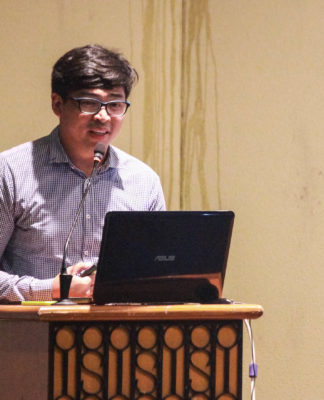January 27, 2016, 10:41a.m. – CEBU CITY – A TRADITIONAL Latin Mass offered by retired Hong Kong Bishop Joseph Cardinal Zen Ze-Kiun took place at the Asilo de la Milagrosa Church as part of the 51st International Eucharistic Congress (IEC) activities.
Cardinal Zen explained the difference between the current liturgy and the old rite in his homily, before a large number of mass-goers including young people, priests and nuns.
“This [Tridentine rite] has the sense of adoration. Sometimes, you do not hear the priest pray [in the Mass] but we all know what is going on,” Cardinal Zen said.
Stressing the importance of receiving the Holy Eucharist, Zen described it as a “sacrament of faith and a gift by which we know God.”
Zen, 84, urged the faithful to attend Mass and receive Christ regularly, not only during large religious events like the 51st IEC but also on ordinary days.
“How should we forget Him, [and] how could we forget Him? The International Eucharistic Congress is [a] wonderful occasion. So we can remember how fortunate we are with the Eucharist,” the cardinal said.
The Shanghai-born prelate, a vocal critic of the Chinese government’s persecution of Christians, gave a testimony at the IEC last Monday on the situation of Catholics in China and the Chinese government’s policy against practicing religion openly.
The Traditional Latin Mass or the “Tridentine Rite” was replaced by the current liturgy, the Novus Ordo Missae that can be said in vernacular languages, by Pope Paul VI in 1969 following the Second Vatican Council that modernized the Church. In 1988, Pope St. John Paul II allowed the old Mass to be celebrated with the permission or “indult” of local bishops.
In 2007, Pope Benedict XVI liberated the Traditional Latin Mass and abolished the requirement for an indult, saying in the letter “Summorum Pontificum” that the old Mass was “never abrogated.” The old Mass is now referred to as the Extraordinary Form of the Mass, while the New Order of the Mass is called the Ordinary Form of the Mass. John Gabriel M. Agcaoili
















